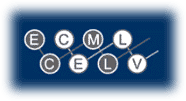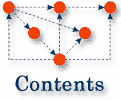
Quality Assurance at the Österreich Institut

Job specification for teachers
Guide for teachers' self-assessment
The company was established in 1997 for organising language courses,
the support and promotion of German language instruction and the accompanying
cultural activities abroad. It has been organised as a non-profit private
limited company, owned by the Republic of Austria under the auspices of
the Federal Ministry of Foreign Affairs. The company co-operates with
interested Austrian and international institutions and partner organisations.
More than 9000 students attend German courses at the five centres every
year.
Currently there are five institutes abroad: ÖI - Bratislava, Slovakia, ÖI - Budapest,, Hungary, ÖI - Krakow, Poland, ÖI - Warsaw, Poland, ÖI - Brno, Czech Republic. The company's head office is in Vienna.
Since 1997 the following priorities within the development of the institution have been set (taking as their starting point the company guidelines, 'Payerbacher Positionspapier'):
- qualification and continuing education of teachers
- implementation of quality standards in the teaching sector
- implementation of feedback processes
The Österreich Institut has set up an internal quality assurance system, and here are examples of some of the instruments used. They combine methods of getting feedback from learners and approaches to teacher quality through reflection and self-assessment.
1. Job specification for teachers
The job specification for teachers provides a frame for maximum performance
as well as a frame for the planning of continuing education of teachers
within the institutes. It commits itself to the principles of intercultural
pedagogic and is based on requirements teachers are expected to meet in
a learner-orientated language class. The job specification describes social
as well as vocational skills (job specification for teachers, job
specification for teachers as questionnaire, guideline
for job interviews).
Traditionally, acquiring and enlarging comprehensive as well as specific
vocational skills is more important than the fact that individuals work
within an organisation, which has its own mission, objectives, management
and team structures. The job specification for teachers takes that fact
into account.
2. Teacher training course for continuing education
At the Österreich Institut a comprehensive training course for
the teachers of all institutes was developed. It focuses on the technical
and organisational as well as the individual perspective in order to renew
the teaching of German at the Österreich Institut.
2.1. Principles
The principles for the concept of continuing education includes:
- the qualification of the individual teacher should be increased
- the organisation should benefit from the enhanced qualification of the individual teachers
- the qualification of teachers should be visible as part of the quality standards at the institutes
- the qualification should serve establishing corporate identity
During the training course we dealt with questions such as:
- What does our teaching look like now? What should it look like?
- What are our main competences? What should they be in the future?
- In which direction do we/does the organisation want to go medium term?
- Which qualifications do we need in order to reach our future objectives and to secure that they are put into practice?
- Which measures are to be set to reach the qualification of the individuals as well as of the organisation? Which role do teams play in this process?
2.2. Generating knowledge
Instead of distributing knowledge the aim of the training course was
to make the generation of knowledge possible. Therefore the training course
dealt only partly with technical qualification - focal point was the process
of learning itself. Self-determination and emancipation of the individual
within the learning process, the solving of problems and conflicts and
the understanding of elementary systemic contexts was the prevalent aim:
to be experienced by the participants of the training course and to be
transferred into the classroom. The individuals, the team and the organisation
always played an equally important role .
Designed as an additional qualification, based on vocational education in German as a Foreign Language the training course created conditions for the possibility of acquiring a new 'map' via reflecting one's own position within a network.
3. Quality Charter
Making the standards of quality visible was an important issue in
all parts of the training course. Gradually, the Quality Charter, a guarantee
of quality for the learners, was created.
At the end of the training course the Quality Charter was fixed and is
given to all learners since Autumn Term 2002. It is also a means for further
quality development at the institutes.
4. Curriculum
In the course of the training a curriculum for the teaching at the
Österreich Institut, consisting of 12 levels, was developed (extract
from the Curriculum).
The curriculum is designed as a practical guide for the teachers at the
Österreich Institut in order to help them in their daily work. By
describing learning objectives it is a guide for planning a course, preparing
and evaluating the daily teaching and the learning progress. It also helps
- in addition to newly developed tests - to allocate the learners to their
courses.
The curriculum supports the teachers in choosing appropriate course books
as well as additional teaching materials.
The curriculum is accorded with international standards and European
descriptions of learning objectives and course levels. Following the European
Language Portfolio the learning objectives are described in 'I can...'
style. The focus on 'learning and communication strategies' prepares the
way for the teaching of foreign languages in the 21st century as it was
formulated by the Council of Europe and the language department of the
European Commission.
Intentionally, some aspects which appear in traditional curricula (e.g.
a list of topics, methods etc.) are not added to the curriculum.
The curriculum was tested by the teachers and learners of the Österreich Institut for two terms. The testing phase was scientifically accompanied and evaluated with a questionnaire. All suggestions for changes and additions were discussed and taken into account.
5. Description of learning objectives for learners
For our learners we created a shortened version of the curriculum,
consisting of the descriptions of learning objectives for each course
level. Each course participant receives the description for his/her course
(which are also available on our website - www.oei.sk)
at the beginning of the course. Thus learners are informed about the learning
objectives which are going to be focused on during their course. Additionally,
the descriptions serve as evaluation of the learning progress after the
course.
6. Counselling of Learners
Individual counselling is available for course participants at all
institutes. Learning diaries
help to record the individual growth in language proficiency, special
learning strategies and interests. Thus autonomous learning is being supported
and the foundation for self reflecting and motivated language learning
is being set.
7. Evaluation
7.1. Evaluation of the teacher training course
After the training course a comprehensive evaluation was carried out
by the University of Vienna, Department of German as a Foreign Language.
The main results:
- The training course supported the formation of a Corporate Identity among the teachers within the Österreich Institut, which is also communicated to the public.
- This process led to a number of activities, e.g. higher customer orientation, individual counselling, the introduction of a Quality Charter.
- The teachers stated that they improved in planning, reflecting and evaluating their own teaching processes.
7.2. Evaluation of the qualification of teachers
The qualification of teachers is continuously evaluated in individual
sessions with the heads of the institutes (Guidelines
for Appraisal). Thereby they agree on annual objectives, e.g.
regarding continuing education. In these talks a specially developed guideline
(similar to a questionnaire) is used. Additionally, a guide
for self assessment of the teachers has come into operation.
7.3. Evaluation of customer satisfaction
As a means to evaluate customer satisfaction a questionnaire for customers
was developed, which has been used since the Winter Term 2001 at all institutes
(Questionnaire for Customer
Satisfaction and Self-assessment
for Learning Progress). The feedback of the course participants
plays an important role in guaranteeing and further developing the quality
standards in the area of teaching as well as in the organisation of the
language courses.
8. Conclusion
Due to a complex interplay of teacher training (including questions
regarding the organisation) and measures to develop, assess and evaluate
quality standards on all levels of teaching and management the brand Österreich
Institut has been created, which is committed to modern teaching standards
and features of quality.
More about the Österreich Institutes on:
www.oesterreichinstitut.at
www.oesterreichportal.at
www.oesterreichinstitut.cz
www.oei.sk
